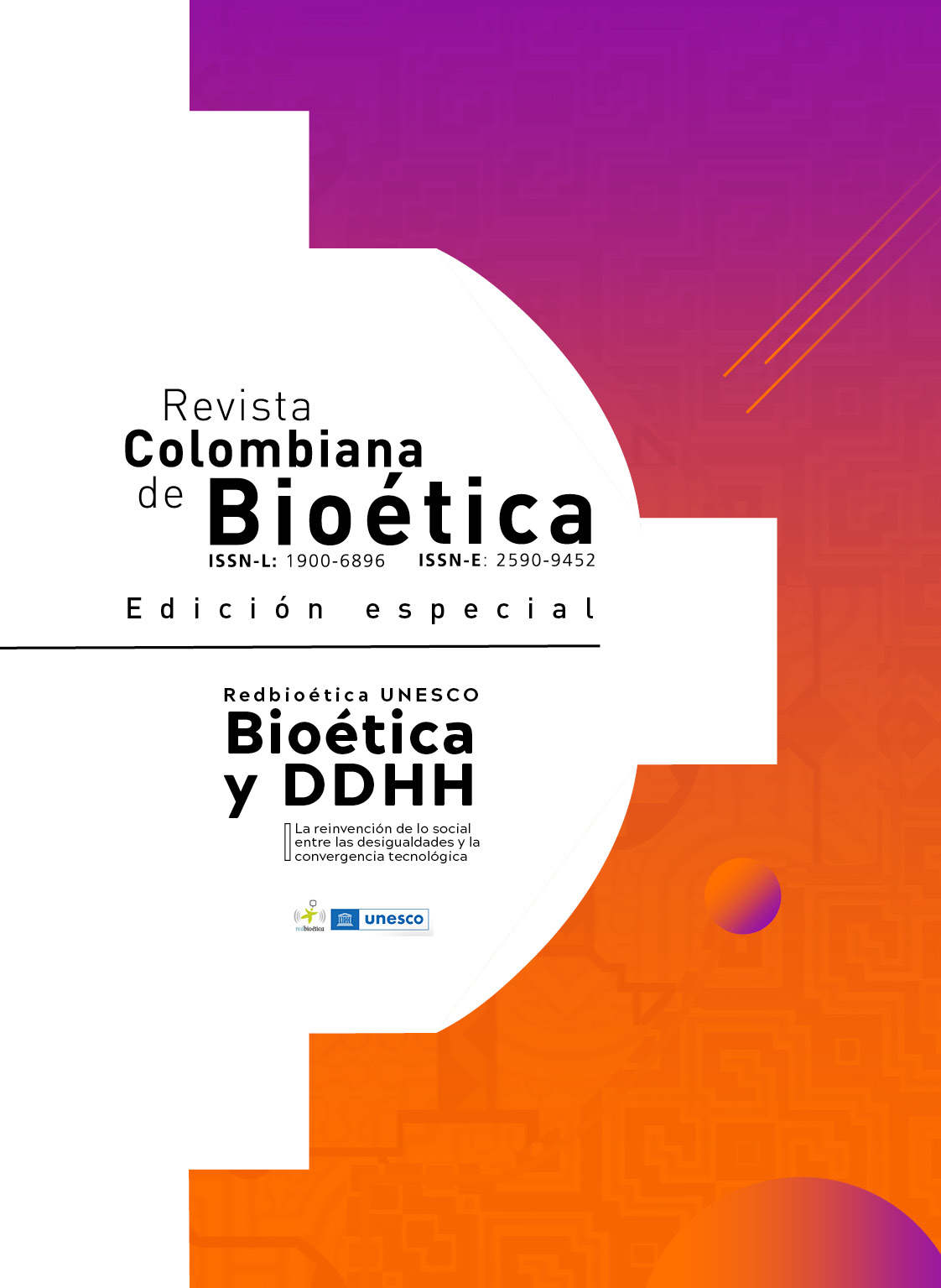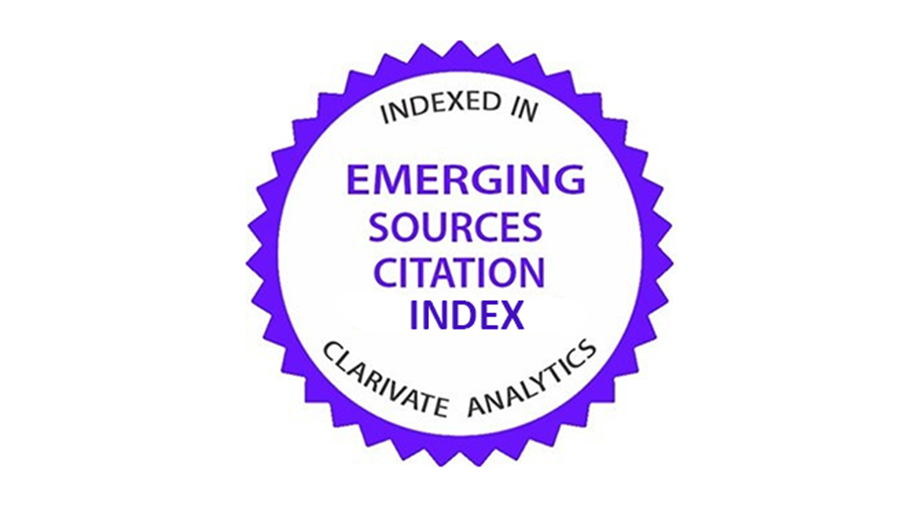Precision medicine and transhumanism: A bioethical perspective.
DOI:
https://doi.org/10.18270/rcb.v17i1.4012Keywords:
Bioethics, human body, digitalization, Artificial intelligence, precision medicine, commodification, transhumanismAbstract
Purpose/Background. To present the concatenation of medical digitalization that unravels from the goal of therapeutic improvement through precision medicine and moves on to enhancement medicine beyond the normal function and form of the human body in order to reach the final purpose of creating transhuman beings.
Methodology/Approach. To select papers that discuss research and eventual practical applications of precision medicine and encourage the possible development of transhumanism through the progression of biomedical enhancement procedures.
Results/Findings. Both precision medicine and transhumanism have nourished public expectations for more effective therapies, and the possibilities of functional enhancement in the areas of cognition and ethics. Research has poured huge resources in anticipation of products allowing for lucrative marketing.
Discussion/Conclusions/Contributions. Bioethics appears divided between its energetic support for the benefits of biomedical research, and reservations about risky application of fast moving biotechnoscience research supported by profit expectations rather than fomenting the common weal. Conservative opposition rests on the “wisdom of repugnance” based on emotional rather than rational argumentation, making for untidy and unproductive deliberation.
Given the incertitude, excessive expectations and vested interests that play a large part in biomedical digitalization, bioethics has been unable to generate a robust debate on these matters. Some inevitable consequences need to be addressed: Unequal access and the negative effects of biotechnological expansion, have a destabilizing impact on adaptation between humans, nonhuman living beings and global environment. It is urgent to call attention about the huge amounts of resources poured into sophisticated biomedical research to the detriment of the ensuing social and ethical problems.
Downloads
References
André, Arthur y Jean-Jacques Vignaux. 2019. “Precision medicine.” En Digital Medicine, editado por Arthur André, 49-58. París: Pitié-Salpêtrière Hospital. https://doi.org/10.1007/978-3-319-98216-8_5
Bostrom, Nick. 2013. “Existential Risk Prevention as Global Priority.” Global Policy 4, no. 1: 15-311. https://doi.org/10.1111/1758-5899.12002
Char, Danton, Nigam Shah y David Magnus. 2018. “Implementing machine learning in health care—addressing ethical challenges.” New England Journal of Medicine 378, no. 11: 981-983. https://doi.org/10.1056/NEJMp1714229
Collins, Francis y Harold Varmus. 2015. “A New Initiative on Precision Medicine.” The New England Journal of Medicine 379, no. 9: 793-795. https://doi.org/10.1056/NEJMp1500523
Day, Sophie, Charles Coombes, Louise McGrath-Lone, Claudia Schoenborn y Helen Ward. 2017. “Stratified, precision or personalized medicine? Cancer services in the ‘real world’ of a London hospital.” Sociology of Health & Disease 39, no. 1: 143-158. https://doi.org/10.1111/1467-9566.12457
de Sousa, Boaventura. 2021. El futuro comienza ahora. Madrid: Ediciones Akal.
De Waal, Alex. 2021. New Pandemics, old politics. Cambridge: Polity Press.
Galas, David y Leroy Hood. 2009. “Systems Biology and Emerging Technologies Will Catalyze the Transition from Reactive Medicine to Predictive, Personalized, Preventive and Participatory (P4) Medicine.” IBC 1, no. 2: 6.1-6.4. https://doi.org/10.4051/ibc.2009.2.0006
García, José. 2013. “Bioética personalista y bioética principialista. Perspectivas.” Cuadernos de Bioética XXIV, no. 1: 67-76.
Goldenberg, Maya. 2005. “Evidence-based ethics? On evidence-based practice and the "empirical turn" from normative bioethics.” BMC Medical Ethics 6, no. 11. https://doi.org/10.1186/1472-6939-6-11
Greely, Henry. 2006. “Neurethics and ELSI: Similaities and Differnces.” The Minnesota Journal of Law, Science & Technology 7, no. 2: 599-637.
Han, Byun-Chul. 2014. Psicopolítica. Barcelona: Herder.
Hughes, James. 2010. “Contradictions from the Enlightment Roots of Transhumanism.” Journal of Medicine and Philosophy 35: 622-640. https://doi.org/10.1093/jmp/jhq049
Iriart, Jorge. 2019. “Precision medicine/personalized medicine: a critical analysis of movements in the transformation of biomedicine in the early 21st century.” Cad. Saúde Pública 35, no. 3. https://doi.org/10.1590/0102-311x00153118
Juengst, Eric, Richard Settersten, Jennifer Fishman y Michelle McGowan. 2012. “After the Revolution? Ethical and Social Challenges in ‘Personalized Genomic Medicine’.” Personalized Medicine 9, no. 4: 429-439. https://doi.org/10.2217/pme.12.37
Keating, Peter y Alberto Cambrosio. 2003. Biomdeical Platforms. Londres: The MIT Press.
Khoury, Muin, Michael Iademarco y William Riley. 2016. “Precision Public Health for the Era of Precision Medicine.” American Journal of Preventive Medicine 50, no. 3: 398-401. https://doi.org/10.1016/j.amepre.2015.08.031
Kirchoffer, David. 2017. “Human Dignity and Human Enhancement: A Multidimensional Approach.” Bioethics 31, no. 5: 375-383. https://doi.org/10.1111/bioe.12343
Maughan, Tim. 2017. “The Promise and the Hype of ‘Personalised Medicine’.” The New Bioethics 23, no. 1: 13-20. https://doi.org/10.1080/20502877.2017.1314886
More, Max. 1990. Transhumanism. Towards a Futurist Philosophy. Recuperado de https://www.ildodopensiero.it/wp-content/uploads/2019/03/max-more-transhumanism-towards-a-futurist-philosophy.pdf
Persson, Ingmar y Julian Savulescu. 2014. Unfit for the Future. The Need for Moral Enhancement. Oxford: Oxford University Press.
Porter, Allen. 2017. “Bioethics and Transhumanism.” Journal of Medicine and Philosophy 42: 237-260. https://doi.org/10.1093/jmp/jhx001
Royakkers, Lambèr, Jelte Timmer, Linda Kool, y Rinie van Est. 2018. “Societal and ethical issues in digitalization.” Ethics and Information Technology 20: 127-142. https://doi.org/10.1007/s10676-018-9452-x
Sadin, Éric. 2018. L’Íntelligence artficielle ou l’enjeu du siècle. París: Éditions Léchapéee.
Sebag, Valérie. 2007. Droit et bioéthique. Bruselas: Larcier.
Sgreccia, Elio. 2013. “Persona humana y personalismo.” Cuadernos de Bioética XXIV, no. 1: 115-123.
Stengers, Isabelle. 2013. Une autre science es posible! París: La Découverte.
Sturdy, Steve. 2017. “Personalised Medicine and the Economy of Biotechnological Promise.” The New Bioethics 23, no. 1: 30-37. https://doi.org/10.1080/20502877.2017.1314892
ten Have, Henk. 2012. “Potter's Notion of Bioethics.” Kennedy Institute of Ethics Journal 22, no. 1: 59-82. https://doi.org/10.1353/ken.2012.0003
Toombs, Kay. 1987. “The meaning of illness: A phenomenological approach to the patient-physician relationship.” Journal of Medicine and Philosophy 12, no. 3: 219-240. https://doi.org/10.1093/jmp/12.3.219
Vidal, María, Ileana del Rosario Morales Suárez, José Alberto Menéndez Bravo, Lilia González Cárdenas y Miriam Portuondo Sao. 2020. “Medicina de precisión personalizada.” Revista Cubana Educación Médica Superior, 34, no. 1.
Zuboff, Shoshana. 2019. The age of surveillance capitalism. Londres: Profile Books Ltd.
Downloads
Published
How to Cite
Issue
Section
License

This work is licensed under a Creative Commons Attribution-NonCommercial-NoDerivatives 4.0 International License.

Esta obra está bajo licencia internacional Creative Commons Reconocimiento-NoComercial-SinObrasDerivadas 4.0.















